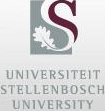Module name |
Module registration number |
Credits per module |
Topics covered within each short course module |
|
General Pedagogy |
(13435) |
6 |
Learning Theories, Instructional Theories, Educational Psychology, Types of assessment |
|
Educational Perspectives |
(49221) |
6 |
Knowledge of education systems, understanding of educational policies educational contexts and understanding of educational policies |
|
Curriculum Management |
(13438) |
6 |
Management of a subject, a learning area, a phase and Lead Teachership |
|
Work Integrated Learning |
(13437) |
12 |
Analysing educational videos and case studies, learning in and from practice, Professional Portfolio and Workplace Project(s) |
|
*Chemistry – Matter and Material |
(13454) |
15 | -
Atomic Structure and the Periodic Table of Elements
-
Particle Model of Matter and Properties of Materials
-
Chemical Reactions and Equations (oxygen with metals and non-metals)
-
Acids and Bases (pH, Neutralisation, acids with metals, metal oxides, metal hydroxides and metal carbonates)
|
|
*Physics – Energy and Change |
(13453) |
15 | -
Sources and Types of Energy
-
Heat Transfer and Insulation
-
Visible Light
-
Static and Current Electricity
-
Energy and the National Grid
|
|
Pedagogical Content Knowledge of Natural Sciences 1 |
(13449) |
15 |
Within a specific content area(s), the following will be covered: -
presentation methodologies and skills
-
an understanding of possible subject misconception
-
scientific literacy
-
the ability to evaluate and apply different assessment strategies
-
inclusion and differentiation strategies
|
|
*Life Sciences – Life and Living |
(13452) |
15 | -
Biosphere, Biodiversity and Ecology
-
Sexual Reproduction and Variation
-
Photosynthesis and Respiration
-
Cytology
-
Micro-organisms
-
Human systems (circulatory, respiratory and digestive)
|
|
*Earth and Beyond |
(13451) |
15 | -
The Earth as system
-
Relationship of Sun, Earth and Moon
-
The Solar System and Beyond
-
Birth, Life and Death of Stars
|
|
Pedagogical Content Knowledge of Natural Sciences 2 |
(13450) |
15 |
Within a specific content area(s), the following will be covered: -
presentation methodologies and skills
-
an understanding of possible subject misconceptions
-
scientific literacy
-
the ability to evaluate and apply different assessment strategies
-
inclusion and differentiation strategies
|

